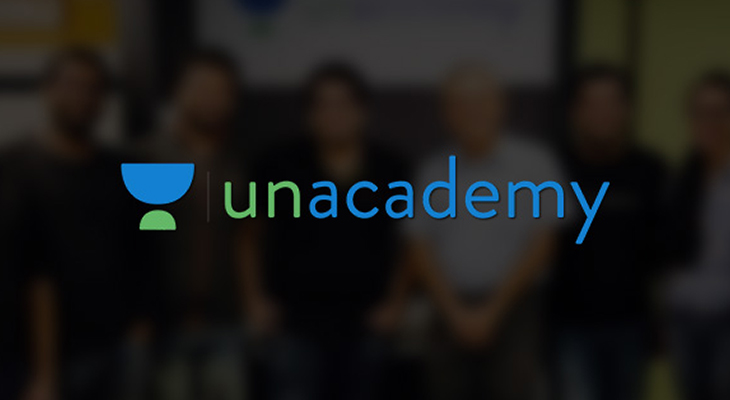
If there’s one industry that has grown tremendously during the Covid-19 Pandemic, it is Ed-tech. With lockdowns all over the world disrupting traditional face-to-face ways of teaching and learning, it’s no surprise 2020 saw the ed-tech industry surge and boom like never before. When one thinks about Ed-tech, one thinks about the bigshots like Byjus, Upgrad, Unacademy, Vedantu, etc., but there exist some interesting elements about this booming industry that many, despite being daily users of ed-tech platforms, are unaware of.
1) Tech-Enabled Immersive Learning is the way forward in education sector
Extended reality is an umbrella term for virtual reality, augmented reality, or the combination of related technology with the real environment. At present it is one of the most common edtech trends. A look at google search result history indicates that the searches for “extended reality” increased by 3,233% since the year 2017. The VR headset price is already at its lowest rate and is expected to drop further to $200 by the year 2023. The total value of AR in the education sector is also expected to reach $5.3 billion by 2023.
2) Ed-tech contributes over £1 billion to the UK economy every year
Edtech is a huge contributor to the UK economy, and investment in the burgeoning Edtech space is set to only go over $252 billion in the coming years. The United Kingdom is also home to Europe’s largest tech cluster. Edtech is bound to remain an indispensable part of the digital ecosystem in the UK in the future years. Reports have revealed that Ed-tech is currently contributing over 1 Billion Euros to the UK economy every single year
3)The estimated value of Unacademy is $510 Million

The Bangalore-based leading Indian online education technology company Unacademy‘s estimated worth is an astounding $510 Million. Started as a youtube channel in the year 2010, the ed-tech platform has witnessed tremendous growth over the years. The company currently has a network of over 12,000 educators and also owns the Youtube-based online teaching platform WiFiStudy.
4) Leveraging omnichannel remains the best way for edtech platforms to target audience
Creating a proper channel to capture leads from multiple sources has helped edtech platforms flourish over the years. Capturing the lead preferences and activities via platforms like Shiksha.com, Justdial, Collegedekho, and similar education marketplaces have helped edtech firms over the years personalise their communication. Utilising omnichannels help ed-tech platforms convey the message to the target group more effectively.
5) The global education technology market size was valued at USD 106.46 billion in 2021
Several reports have revealed after the onset of the Covid-19 Pandemic, the edtech market has witnessed an unprecedented surge. Learners and students are now increasingly shifting toward eBooks that can be accessed online from anywhere across the world. Shift to online classes owing to the Pandemic has majorly contributed to the increase in market size of the global educational technology market size. The fact that digital books are easily available in different languages and can be easily translated and retrieved by a wider user base is also tempting more learners to try their hand at edtech platforms. Learners, especially those with physical disabilities, are also now able to engage in class discussions more due to the presence of edtech platforms. Hearing-impaired learners can also now listen to the educational content in an audio format to improve their vocabulary and encourage better interpretive reading.
6)Cloud Computing is gonna carry ed-tech in the coming years

In March this year, ViewSonic Corporation, a global provider of communication and electronics, launched its new cloud-based platform, myViewBoard, an AI-driven tech for students to help them engage in the classroom. Further, it helps determine whether or not students are paying attention by assessing human posture and ambient elements that may influence students’ concentration. This would also help teachers and tutors use the information and make necessary changes to their lessons. Cloud deployment appeals to enterprises of all sizes mainly it offers regular data backup, lower operational expenses, high security, lower capital, and rapid deployment features for always-on functioning. These benefits of cloud deployment of now propelling more EdTech platforms to adopt cloud computing to make teaching and learning more efficient
7)North America dominated the ed-tech market in 2021, accounting for more than 35% share of the global revenue
North America’s domination in the ed-tech sector is mainly due to the plenty of investments from venture capitalists and private-equity investors in the EdTech market in the United States. For e.g., in July last year, Class Technologies Inc., a U.S.-based EdTech platform that serves higher education classes as well as K-12 students, raised its funding worth approximately $ 105 million in Series B funding.
8)Business segment dominated the EdTech market in 2021
The business segment amounted to more than 69.08% share of the global revenue. The high share can mainly be attributed to the surge in partnerships among EdTech firms, educational institutes, and content developers to create significant opportunities for the digital education sector.
9)Global Ed-tech market is expected to reach $ 127.0 billion in the year 2022

Enhancing student engagement using AI, Cloud computing etc., is causing the ed-tech market to boom rapidly. Research suggests that the Global Ed-tech Market is likely to reach $127.0 billion in this year, emerging as a prime concern for educators. New Initiatives such as the presence of student information systems (SIS) is now encouraging active learning and the development of critical readiness skills in the learners.
10) Byju’s had tied up with Google in 2021 to offer “learning solution’ for schools in India
Many are unaware of how Byju’s, an Indian ed-tech giant, has partnered with a multinational tech company like Google to help offer more comprehensive learning solutions for schools in the country. Students signing up for the Byju’s-Google platform will get official email IDs for all faculty, students, and admin staff, supported by Google Workspace for Education. The learning solution would help facilitate classroom management and help organise, access, and track classroom learning.

The ed-tech industry will continue growing, and the market trends will continue changing. More Ed-tech platforms are expected to emerge in the coming year to help facilitate and enhance learning and disrupt the traditional mode of teaching. The potential for scalable individualized learning will continue to be a major factor for the increasing growth of this sector.








